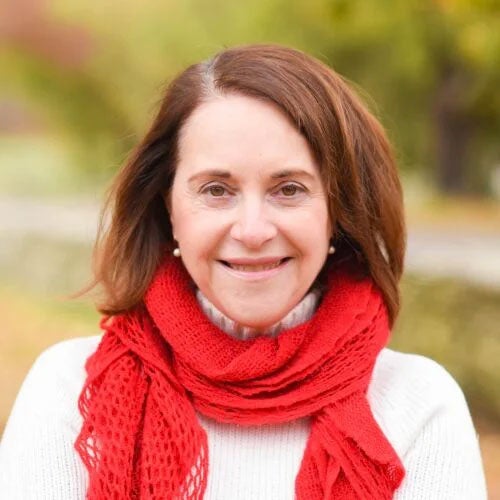Evelyn Sterne’s path to becoming a historian of religion was not a straight line; her career trajectory ebbed and flowed, taking unexpected pivots guided by intuition. Sterne has been part of the URI community for the last 26 years as a professor of history who teaches courses on the history of American religion, immigration and communal societies. Since 2019, she also has served as the director of the Center for the Humanities.
In 2020 the center started two speaker series every year. One series invites humanities faculty and graduate students to present their research, and the other is a high-profile external speaker series that centers on a different theme each year. These themes have included the centennial celebration of the 19th Amendment, environmental humanities, innovations in storytelling, sustaining democracy, and this year’s series on popular culture and counterculture.
“I’m so proud of the work done by the Center for the Humanities in creating exciting programming that appeals to an interdisciplinary audience of students and faculty from all across the university,” says Sterne. “We love bringing in alumni and community members, too. All our programming is free and open to the public.”
Sterne’s academic journey begins at Yale as an undergraduate English major who always loved history. Originally, her plan after graduation was to move onto a doctorate in English with the guidance of a mentor at the time. Instead, she decided to take a few years off to work and to spend time figuring out what she really wanted to do. For three years, she worked as a town reporter for a newspaper in Connecticut
“Working for that newspaper was fantastic preparation for grad school. It helped me adhere to deadlines and improve my time management skills. More than anything, it made me interested in American history because I felt that as a reporter I needed a better foundation in precedents for the issues I was covering” says Sterne.
Once her interests began to crystalize, the pursuit of graduate school took center stage again. Sterne considered earning a graduate degree in American history with the intention of either teaching, or becoming a stronger journalist. She landed at Duke University to study labor and immigration history, which eventually transitioned into the history of religion.
“I became really interested in the social and material benefits of being part of a religious community, and in why people embraced particular belief systems and what it was like to be part of those communities,” says Sterne.
Her research has ranged from Catholics in Rhode Island to Pentecostals in New Hampshire to her most recent book, The House of David: Salvation, Scandal and Survival in a Modern American Commune. This was published by Oxford University Press in 2025 and was a departure from her typical research that is usually based in New England.
The book uncovers the story of a small and unusual religious commune founded in Michigan in 1903. The commune peaked during the First World War and still lingers on as a tiny remnant today. The group was unique as it embraced popular culture with amusement parks, traveling jazz bands, and barnstorming baseball teams. Outsiders were determined to discredit the House of David as they did not believe it was a real religion. There was no ordained ministry, rituals or sacraments. Rather, it was a religion that was integrated into everyday life.
“Ultimately, the book turned into a case study of what defines religion and who gets to decide what religion is. I had always wanted to write a book about a small, unusual religious community that I could use to tell a a bigger story,” says Sterne.
As a professor, Sterne loves teaching her undergraduate students about the history of American religion and immigration in the 19th, 20th and 21st centuries. The themes of immigration and religion are incredibly topical and tend to inspire students to become more engaged. Discussions on contemporary immigration legislation and Supreme Court cases that involve religion are common and encouraged.
Her newest research project is a multidenominational study of religion in Boston during the Great Depression. She has always been fascinated by the Depression as a time when the United States could have easily fallen apart, but did not, and in the role that religion played in that story. There is a widespread assumption that religion declined during this period of time because people did not have money to donate to their places of worship, and conversely, these places did not have the resources to meet the needs of mass unemployment. In fact, however, she is finding that the story is much more complex.
“Although many places of worship did indeed struggle with declining budgets, they continued to play important roles in the lives of their congregations, providing spiritual, social and material support. Denominations such as Unitarians and Universalists had national newspapers based in Boston in which they engaged in national debates about how to help the unemployed and weighed in on issues like FDR’s New Deal,” says Sterne. “I’m finding a story of vibrancy!”

